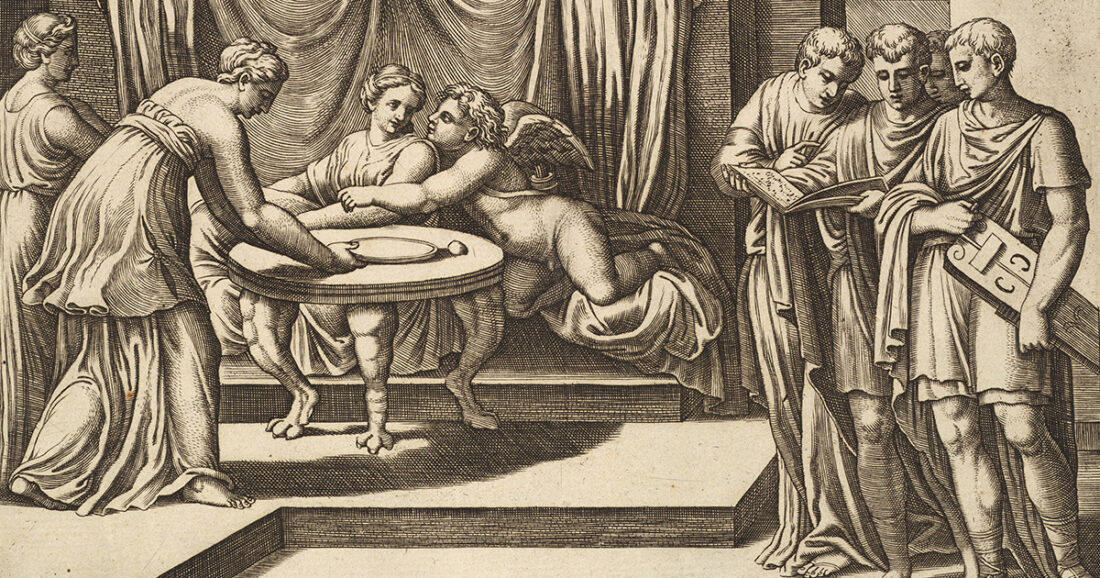We live in a time of extraordinary uncertainty, and this is clear not just from personal experience, but with any cursory glance at media and talking heads, from mainstream sources to YouTube, to Tik Tok. Everyone is trying to understand what is going on, and everyone is asking why things seem so bleak and so tense. Has it always been this way?
To take but one example, as a priest, one of the things that has surprised me the most is how often I hear young people express their desire to find a partner and get married. These desires often meet with great frustration, and early adulthood from early 20s to 30s (and, frankly, even later) is marked by persistent loneliness and despair at the experience and prospects of dating.
Certainly this is something we can look at and say: this has not always been the case. That’s not to say courting has always been easy, but most people have had little trouble finding a partner and getting married, and even staying married, until very recently. The rise of divorce rates in the last hundred years has now given way to an almost unmanageable set of variables to consider when dating.
Here is a very brief survey of those difficulties: traditional and social media have created unrealistic expectations of falling in love, dating, getting engaged, and even getting married. These high expectations crash against the rocks of a society that no longer has a “monoculture.” Even in the 1980s, 1990s, and early 2000s, you could presume people were watching, reading, buying, and generally engaging similar material. It was possible to have enormous worldwide pop culture icons like Michael Jackson. But with the rise of the internet, and the ease of which people can produce content, the sheer amount of content available is staggering, and, moreover, due to algorithms all of it is ultimately tailored to personal taste. The death of a monoculture means we no longer have a shared overriding pop culture, let alone anything else, but rather can tailor our experience to whatever peculiar desires we have. How, then, can we engage others in completely different sub-culture?
That proliferation of content is met with other social ills: the unimaginable rise of attention disorders—themselves exacerbated by short-form content—the continued rise of mental illness, addictions to pornography (in both men and women), and a culture of increasing promiscuity with applications built for this purpose. All of this contributes to a rather complicated outer as well as an inner landscape. How does all of this shape us? Does it shape us for the better?
We now live in a fragmented culture in general, with no shared political values, shared traditions, religious or otherwise, and so ultimately no shared values: no sense of who we are, why we are here, what we are made for, and so how we should live together. That bleeds over rather quickly into bedrock beliefs about what it means to be a man or a woman, let alone why we should get married, be monogamous, or how that all works out in day-to-day life.
And you thought shopping in a grocery store was hard (see my article, Education and the Paradox of Choice)
And yet one might think that the desire for monogamy and marriage would just deteriorate. Perhaps it will. Monogamy as we have come to understand it is the inheritance of Christianity, and is by no means obvious or common in cultures and religions that have not been shaped by it. Yet, nonetheless, we still have a lot of young people feeling that pull: toward life-long love, to sacrifice, to children, to a life reflective of something transcendent, to a life rooted in communities, with families, that support one another, and work toward common ends.
What does all of that amount to? At the very least, our period of extraordinary uncertainty is a period of extraordinary and far-reaching loss of identity, and so a permanent identity crisis. What the solution to such a thing might be is obviously too complicated to say here. I would suggest, though, that we ask the same question I did at the outset: has it always been this way?
Perhaps, then, a look at the past, and not just the last hundred years, but of the last two thousand, can provide some kind of account of where we came from, how we got here, and how we might be able to backtrack our steps. I say this not in an idealistic flight to the past, but in order to see what we may have unintentionally lost, and so how we might recover it.
We may not love everything we find, but few of our personal pasts turn out that way. We will however learn how to love ourselves, and each other, because however imperfect our past we cannot become a self without a story, and it is precisely that kind of grand story—a metanarrative, if you will—that we have forgotten how to tell.
And who can fall in love without such a story?
Rev Fr Alexander Earl is the Director of the Pacifica Center for Philosophy + Theology
Artwork: “Psyche seated at a table and attended by invisible servants, Eros beside the goddess, from The Fable of Cupid and Psyche.”
